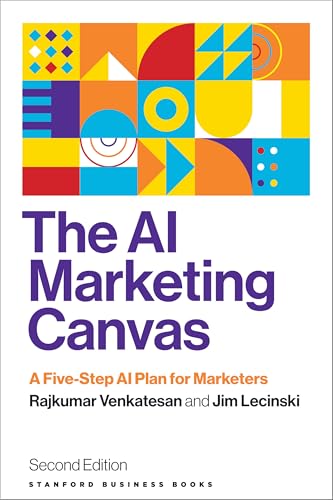AI in marketing has its perks, but it can lead to costly mistakes. Over-relying on it might strip your brand of personality, alienating your audience. You could easily miss authentic engagement moments, and one wrong data handling could tarnish your reputation. Blunders from biased algorithms can create legal trouble and erode trust. Balancing automation with human insight is essential. If you want to uncover more about these pitfalls and how to avoid them, keep exploring the topic.
Key Takeaways
- Over-reliance on AI can lead to impersonal messaging, alienating customers and damaging brand loyalty.
- AI blunders, such as biased algorithms, risk legal issues and can severely damage brand reputation.
- Poor data quality and outdated tools may result in ineffective marketing strategies and wasted resources.
- Automation can overlook genuine engagement opportunities, diminishing the personal touch that fosters customer relationships.
- Dependence on AI can erode critical thinking, hindering adaptability and creativity needed for effective marketing strategies.

As marketing increasingly leans on artificial intelligence, it's crucial to recognize the potential pitfalls that come with this reliance. When you let AI take the lead without human oversight, you risk creating content that feels impersonal. This can alienate your audience, making them feel disconnected from your brand.
Imagine sending out messages that don't quite resonate or align with your brand's voice—it can lead to inconsistent messaging that confuses your customers and undermines your efforts. Human insight is essential for maintaining brand relevance and quality, so neglecting it can lead to further issues. Additionally, the growth of AI-driven platforms catering to diverse preferences underscores the importance of understanding your audience's unique needs.
You might think AI saves time, but over-reliance can actually cause you to miss out on authentic engagement opportunities. Genuine interactions with customers are invaluable, and when you automate everything, you might overlook those special moments that can build loyalty.
Moreover, AI blunders—like incorrect data handling or biased algorithms—can damage your brand's reputation and even lead to legal issues. You don't want to find yourself in hot water because of a mismanaged campaign.
The technical challenges of implementing AI can also be daunting. AI isn't a "set it and forget it" solution; it requires continuous monitoring and adaptation to stay relevant.
If you don't keep up with AI advancements, you may waste resources on outdated tools that don't provide a clear return on investment. Poor data quality can exacerbate these issues, leading to misguided marketing decisions that could cost you dearly.
Strategically, over-reliance on AI can erode your critical thinking and decision-making skills. You might find yourself dependent on automation, hindering your ability to adapt to changing market conditions.
Plus, AI-generated content often lacks creativity, making it tough for your brand to stand out. Remember, AI should complement your human intelligence—not replace it.

AI for Small Business: From Marketing and Sales to HR and Operations, How to Employ the Power of Artificial Intelligence for Small Business Success (AI Advantage)
As an affiliate, we earn on qualifying purchases.
As an affiliate, we earn on qualifying purchases.
Frequently Asked Questions
How Can Brands Effectively Implement AI in Their Marketing Strategies?
To effectively implement AI in your marketing strategies, start by understanding AI's capabilities like automation and personalization.
Use AI tools for data analysis and sentiment tracking to refine your campaigns.
Balance AI with human insights to maintain a personal touch.
Regularly review AI-generated content for relevance and quality.
Track performance metrics and encourage feedback to continuously improve.
What Are the Costs Associated With Integrating AI Into Marketing?
Did you know that implementing a custom AI solution can cost you anywhere from $6,000 to over $300,000?
When integrating AI into your marketing, consider not just the initial investment but also ongoing expenses like monthly fees, maintenance, and the salaries of data scientists.
Expect annual maintenance costs between $8,999 and $14,999.
It's essential to budget wisely, as the financial commitment can be substantial yet impactful for your marketing efforts.
Can AI Replace Human Marketers Entirely?
You might wonder if AI can replace human marketers entirely.
While AI excels at data analysis and automating tasks, it lacks the creativity and emotional intelligence that humans bring to the table.
It can enhance your marketing efforts, but it can't replicate the unique brand voice and strategic thinking you provide.
Instead of replacing you, AI's best role is to complement your skills, allowing you to focus on more creative and strategic initiatives.
How Do I Measure the ROI of AI Marketing Tools?
Measuring the ROI of AI marketing tools is like navigating a maze; it takes strategy and insight.
Start by setting clear objectives and assessing all costs associated with implementation. Use the ROI formula to quantify your financial benefits.
Employ methods like multi-touch attribution and predictive analytics to understand the customer journey better.
Finally, ensure you have robust data quality to support your findings, or you might find yourself lost in the complexity.
What Skills Should Marketers Develop to Work With AI Technologies?
To effectively work with AI technologies, you should develop essential skills like data analysis, machine learning basics, and marketing automation.
Familiarity with AI-powered content tools will enhance your creative process. You'll also need proficiency in CRM systems to manage customer data efficiently.
Don't forget about data literacy and understanding AI's capabilities and limitations.
Continuous learning and human oversight are crucial to ensure you're making informed decisions and maximizing AI's potential in your marketing efforts.

Ethical AI Marketing: Building Trust and Avoiding Bias in the Age of Algorithms
As an affiliate, we earn on qualifying purchases.
As an affiliate, we earn on qualifying purchases.
Conclusion
In the fast-paced world of AI marketing, it's crucial to remember that "a stitch in time saves nine." While automation can drive efficiency and insights, rushing into AI without careful consideration can lead to costly blunders. Brands must tread carefully, ensuring they balance innovation with strategy. By learning from past mistakes and embracing a thoughtful approach, you can harness the power of AI without falling prey to its pitfalls, ultimately paving the way for sustainable success.

AI Stock Analysis for Smarter Trades: How to Use ChatGPT and AI Tools to Combine Fundamental Analysis, Market Context, and Price Action to Spot … Without Signals or Guesswork (Stock Trading)
As an affiliate, we earn on qualifying purchases.
As an affiliate, we earn on qualifying purchases.

The AI Marketing Canvas, Second Edition: A Five-Step AI Plan for Marketers
As an affiliate, we earn on qualifying purchases.
As an affiliate, we earn on qualifying purchases.










